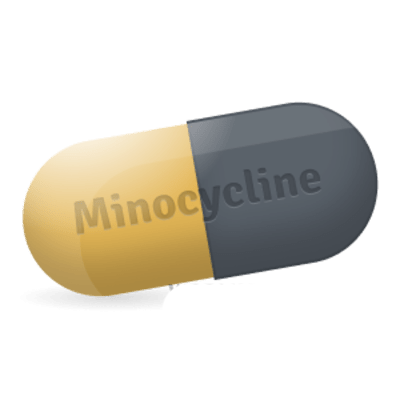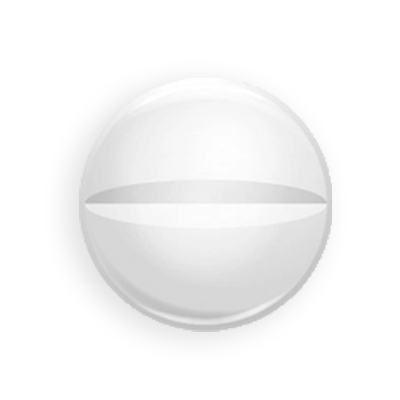Used Erythromycin to treat an infection after surgery and was very pleased with the results. Symptoms began to subside within a couple of days and full recovery was quicker than expected.

Erythromycin
- Quality products
- Support 24/7
- Fast delivery
What is it?
Erythromycin is a powerful macrolide antibiotic that is successfully used to treat various infections caused by bacteria. This drug is an effective means of combating bacterial infections of various origins, helping to suppress the growth and reproduction of pathogenic microorganisms. Erythromycin has proven itself as a reliable means in the treatment of infections of the respiratory tract, skin, soft tissues and other body systems caused by bacteria sensitive to the drug. Its ease of use and wide range of action make it one of the preferred antibiotics in its category.
Composition
Erythromycin is a medicinal product that includes certain active and auxiliary components that ensure its effectiveness and ease of use.
- Erythromycin is the main active component of the drug, which is a macrolide antibiotic.
- Colloidal silica - helps stabilize the dosage form.
- Potato starch - is used as a filler and binder.
- Lactose - acts as an auxiliary substance to give shape and improve taste properties.
- Talc - is used to improve the fluidity and stability of the tablet form.
The combination of these components ensures the stability of the drug, its effectiveness and ease of storage, as well as the optimal action of the active substance. Due to its balanced composition, Erythromycin allows you to reliably suppress infectious processes and promotes rapid recovery. Before using the medicine, you should read the composition to avoid possible allergic reactions.
How to use?
The correct use of Erythromycin involves following a few simple guidelines that will help you to cope with infections as effectively as possible and avoid side effects.
- Take Erythromycin exactly as prescribed by your doctor. This includes not only the dosage, but also the time of taking the medicine.
- Each dose should be taken with a full glass of water to prevent stomach irritation.
- You can take the drug both on an empty stomach and with food or milk, which reduces the risk of stomach discomfort.
- Never chew or crush extended-release tablets. Tablets must be swallowed whole to ensure proper release of the active ingredients.
By following these guidelines, you will be able to get the most positive effect from the treatment. If you miss a dose, do not double the next one, but continue taking it as scheduled.
How does it work?
Erythromycin interacts with bacterial ribosomes, blocking protein synthesis, which ultimately leads to a cessation of growth and reproduction of pathogenic microorganisms. This mechanism of action makes it particularly effective against many gram-positive and some gram-negative bacteria. Due to its ability to penetrate body tissues, Erythromycin ensures concentration in the foci of infection, which contributes to their rapid resolution.
The drug usually begins to act within a few hours after administration, and improvement in the patients condition can be noticeable already on the second or third day of treatment. However, it is important to complete the full course of therapy, even if the symptoms of infection have disappeared, to prevent the development of resistant forms of bacteria. The drug is well distributed in the body, providing a long-term therapeutic effect.
Indications
Erythromycin is indicated for the treatment of various infectious diseases caused by susceptible microorganisms. It is used in certain situations where effective antibiotic treatment is needed.
- Respiratory tract infections such as pneumonia and bronchitis.
- Skin and soft tissue infections, including boils and abscesses.
- Urinary tract infections, which may include both simple and complicated cases.
- Prophylaxis of streptococcal infections, especially in patients with penicillin allergy.
Given the seriousness of the indications, it is important to follow all doctors recommendations and the prescribed regimen to achieve the maximum therapeutic effect.
Contraindications
The use of Erythromycin may be unsafe for certain categories of patients. Before starting treatment, it is necessary to consider possible contraindications.
- Allergic reaction to erythromycin or other macrolide antibiotics.
- Use in combination with drugs such as cisapride or pimozide, due to possible serious reactions.
- History of liver disease or myasthenia gravis, which requires dose adjustment.
- Pregnancy and lactation require consultation with a doctor to assess the risks and benefits.
You should also provide your doctor with a complete list of the drugs you are taking to exclude potential interactions and ensure the safety of the course of treatment.
Side effects
Despite its effectiveness, Erythromycin may cause side effects in some patients. These reactions may vary in severity and duration.
- Nausea, vomiting, and gastrointestinal upset are observed in some patients at the beginning of therapy.
- Headache and dizziness may also accompany the drug.
- Skin rash or itching may signal an allergic reaction that requires attention.
- Serious side effects, such as increased diarrhea, require immediate consultation with a doctor.
It is important to follow the doctors instructions and report any unexpected changes in your well-being so that corrective measures can be taken in a timely manner.
Frequently asked questions
Erythromycin Reviews and Experiences
I experienced mild nausea during the first few days of taking it, but after a while my body adapted. The infection I had been fighting for months was finally defeated thanks to this drug.
Good remedy for infections. I had a skin infection and after a few days of taking this antibiotic the inflammation and discomfort were significantly reduced. The only thing is that I feel a little dizzy, but it did not interfere with my work.









